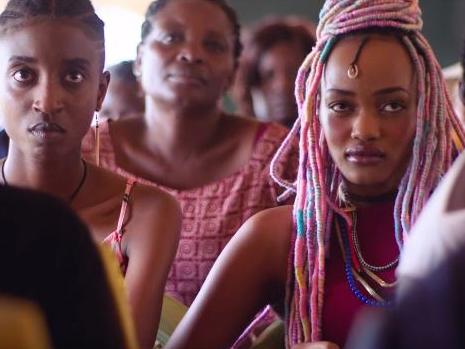Kenya bans first feature film to premiere at Cannes Film Festival because it ‘promotes lesbianism’
'Any attempt to introduce and normalise homosexuality in Kenya flies in the face of the law and the constitution and must be resisted'

Your support helps us to tell the story
From reproductive rights to climate change to Big Tech, The Independent is on the ground when the story is developing. Whether it's investigating the financials of Elon Musk's pro-Trump PAC or producing our latest documentary, 'The A Word', which shines a light on the American women fighting for reproductive rights, we know how important it is to parse out the facts from the messaging.
At such a critical moment in US history, we need reporters on the ground. Your donation allows us to keep sending journalists to speak to both sides of the story.
The Independent is trusted by Americans across the entire political spectrum. And unlike many other quality news outlets, we choose not to lock Americans out of our reporting and analysis with paywalls. We believe quality journalism should be available to everyone, paid for by those who can afford it.
Your support makes all the difference.Kenya has banned its first feature film to premiere at the Cannes Film Festival, accusing it of having “clear intent to promote lesbianism in Kenya contrary to the law”.
Director Wanuri Kahiu said she is “incredibly sorry” to confirm the ban of Rafiki or Friend in Swahili, by the Kenya Film Classification Board. Her film depicts a love story between two women.
In Kenya, people who have gay sex can face up to 14 years in prison. Many countries across Africa have laws against homosexuality, with people facing severe harassment and physical threats.
“I think that there are discerning audiences not only in Kenya, but the entire world that are able to judge what’s good and bad and it’s not what’s defined by the Kenya Film Classification board,” Ms Kahiu told The Associated Press.
She said she has tried to have the film classified for viewers 18 and above.
“It’s limiting freedom expression of artists in the country and hence the growth of the industry,” she added.
The director has said in interviews she had been nervous about the film’s reception in Kenya, but found support from government authorities and the local film industry.
But the film board accused producers of changing the original script that was licenced for production and said it “shall pursue the legal means to hold them accountable”. The original script didn’t have romantic scenes between the female actors, the board said.
“It is our considered view that the moral of the story in this film is to legitimise lesbianism in Kenya,” the board’s statement said. “Any attempt to introduce and normalise homosexuality in Kenya flies in the face of the law and the constitution and must be resisted.”
The board said it met with the director earlier this month and asked her to edit out the film’s “offensive” parts. On Wednesday, the director instead told the board to go ahead and make a ruling, it said.
Kenyan gay rights activists quickly raised an outcry, while the Cannes Film Festival shared Ms Kahiu’s comments on Twitter. Rafiki debuts at the festival next month.
Kenya’s National Gay and Lesbian Human Rights Commission pointed out that the film board’s CEO, Ezekiel Mutua, had praised Rafiki earlier this month to local radio station Hot 96 FM, calling it “a story about the realities of our time” and “the issues of homosexuality”.
In those comments, Mr Mutua said they wanted to avoid “a situation where it is nominated and we are not celebrating it here”.
The film’s ban comes as Kenya’s High Court has begun hearing arguments in a case that challenges parts of the penal code seen as targeting the LGBT community. The National Gay and Lesbian Human Rights Commission argues that the sections are in breach of the constitution and deny basic rights by criminalising consensual same-sex relations between adults.
The court is expected to announce a date for its ruling on Monday.
AP
Join our commenting forum
Join thought-provoking conversations, follow other Independent readers and see their replies
Comments